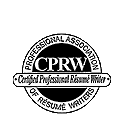25 Things You Can Do For Your Job Search Today!
{Click here to read the original article on Careerocketeer.}
One of the challenges that keeps many job seekers from accomplishing much for their job search from day to day is that they don’t know what to do next!
They may have a networking meeting, interview, or a few calls planned for the day, however, when that’s done, they are often at a loss as to what they could do next.
As a result, the default is usually sitting down in front of their computer, and surfing job postings for hours. Maybe applying to a few, however, almost never with any results.
So what’s the alternative? Here are 25 tasks (in no significant order) that you can do when you don’t know what to do next… pick some….
- Reconnect with a networking contact you haven’t talked to in a few weeks.
- Use LinkedIn to find additional contacts at companies you’ve applied to or are targeting in your search.
- Write a script for networking phone calls to friends and acquaintances.
- Write a script for networking phone calls to people you’ve been referred to, but don’t know personally.
- Write a script for networking phone calls into companies you’ve targeted for your search.
- Search LinkedIn for other people in your area that have similar skills as you, to see what companies they work at, and add some of those companies to your target list.
- Read an article to keep abreast of changes or new developments in your field or industry.
- Make a list of ALL the people you know in the world to systematically contact and ask for referrals of additional worthwhile contacts for your search.
- Weekly add people to your contact list that you hadn’t thought of earlier.
- Send out an email (using the BCC field) to all your networking contacts of the last few weeks/months with an update of your search, and letting them know you are still interested in new referrals and leads.
- Use LinkedIn, and/or a local networking group to find 3 or 4 additional people that work in your field or industry that are also currently looking for a new position and create a “mini”, more targeted networking group; meet weekly and each bring leads and contacts for each other.
- Use LinkedIn to find all the people you’ve worked with in the past, find out where they work now, and contact them regarding leads and additional contacts in their current companies.
- Set up “agents” on Indeed, SimplyHired, and LinkUp to automatically send you new relevant job postings each day so you don’t spend unnecessary time running new searches everyday on each site.
- Set up a calendar for the week, blocking out time for networking calls, follow up calls for online applications, company research time before networking meetings and interviews, and LIMITING your time surfing job postings. Then follow your plan. You’ll be more productive with effective job search strategies rather than taking up too much time on tasks that produce low results.
- Create, or fine tune your Elevator Speech with the intent of asking for other referrals from people, not asking for jobs. People are not walking job boards, but they do know other worthwhile contacts for you.
- Make a list of 10 people you will call today. Gather up their phone numbers in advance, gather appropriate scripts you’ve created for yourself, and call all 10 people in a row, without a break. Each call gets easier when you do several in a row.
- Search online, and in your local paper for industry or field specific local networking group, trade group, professional association, or user group meetings coming up this week. Then plan on attending and be prepared to network with people employed in your field or industry.
- Set follow up dates on your calendar with EVERY person you’ve talked to regarding your job search. A month from now they will think you’ve landed and won’t tell you of new ideas or contacts unless they are reminded you’re still interested.
- Write out answers to commonly asked interview questions. You’ll be much more articulate once you’ve written answers in complete sentences rather than ramble off the cuff when they come up.
- Develop more STAR stories for behavioral interview questions that might arise.
- Read something that encourages you and gives you confidence; something that boosts your attitude and charges your batteries to have more enthusiasm and energy for your search and a better presentation to others.
- Tailor your resume specifically for the next job you are pursuing, either for an informational interview or online application.
- Practice interview questions into a recorder or video on your PC or phone. Listen to yourself and make adjustments as necessary.
- Ask previous employers or other hiring managers in your field what are some of the best recruiters they’ve used to hire people, then contact those recruiters to pursue potential opportunities.
- Make phone calls into companies where you’ve applied to job postings but haven’t heard anything yet.
Next time you don’t know what to do next for your job search… pick things from this list and get to it! Your results will improve dramatically.
Comments are closed.







